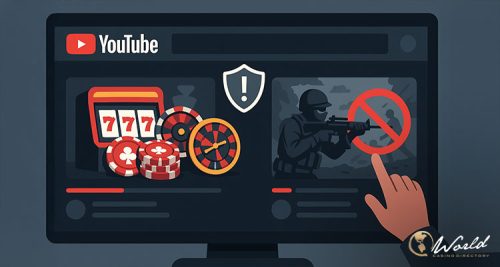Casinos de France, the primary trade association representing land-based casinos in the country, has urged the French government to block any attempt to legalise online casinos, saying it could lead to over €500 million ($576 million) being lost from public financing.
It has also rejected claims from online gambling association AFJEL that the country is losing as much as €1.2 billion to illegal online casino operators.
Calls to reform the French online gambling market have increased in recent months amid concerns over illegal online offerings. At present, only internet sports betting, horse race betting and poker is permitted in France, with online casinos outlawed.
Lost revenue claims a ‘hoax’
Casinos de France said in its latest statement on Wednesday that legalising online casino would result in a net annual loss of €546 million for public finances, taking into account indirect effects related to health and employment.
Grégory Rabuel, president of Casinos de France and CEO of casino operator Barrière Group, went on to say that the €1.2 billion lost revenue touted by AFJEL “does not exist”.
“It’s a hoax, and worse, it’s a loss for the state,” he said. “Destruction of local jobs, reduction of municipal budgets, the withering away of cultural life in towns and villages. I’m not even mentioning the impact on the mental health of the French, which would amount to hundreds of millions in additional costs for social security.”
Casinos de France instead warned a legal iGaming market would cause “massive” job losses, lead to the closure of dozens of businesses and reduce resources for local authorities in France. It also said such a move would weaken social and economic ties.
Negative impact on physical casinos
At present, the association said the market comprises 203 casinos and seven Parisian gaming clubs, employing over 31,000 people.
In addition, the segment generates €1.6 billion in overall tax and social security revenue and contributes over €600 million each year to local municipalities. Any move to legalise online casinos, the group said, would negatively impact these figures.
The group acknowledged many other larger European countries had legalised online casinos in some form. However, it also highlighted the negative impact this had had on land-based casino venues, as well as how illegal online gambling remained an issue despite regulation.
It noted that land-based casinos had completely disappeared in Sweden since it legalised online casino. The final Casino Cosmopol site, operated by Svenska Spel, closed in April of this year. However, it said almost 40% of wagers in the country were placed on illegal sites.
The group also flagged markets like Switzerland which faced mirror sites constantly reappearing after being blocked by regulator.
“Everywhere, the promise of new revenue has turned into a net loss for local communities: decreased economic activity, job losses, a surge in risky behaviour and the persistence of a thriving black market,” Casinos de France said.
“The mechanism is relentless. When digital takes hold, it captures existing customers without creating new players. The market does not expand, it shifts, and illegal activity latches on.”
Land-based casinos have ‘humane model’
Casinos de France also said that land-based casinos offered a safer gambling option to players. It said this model is “social, humane and profoundly responsible”, in contrast to the online sector, which it said “does not guarantee the same level of security for players”.
“In a physically supervised gaming environment, casinos are the only places where every player is screened before even entering, where minors are systematically excluded and where risky behaviours are identified and addressed by trained staff,” it said.
“Supervision is real, immediate and humane. Casinos directly ensure addiction prevention and support concrete responsible gaming programmes. They are places of community and social connection, where gambling is never an incentive but a controlled, monitored activity, integrated into the local economy.”

 16 hours ago
13
16 hours ago
13














